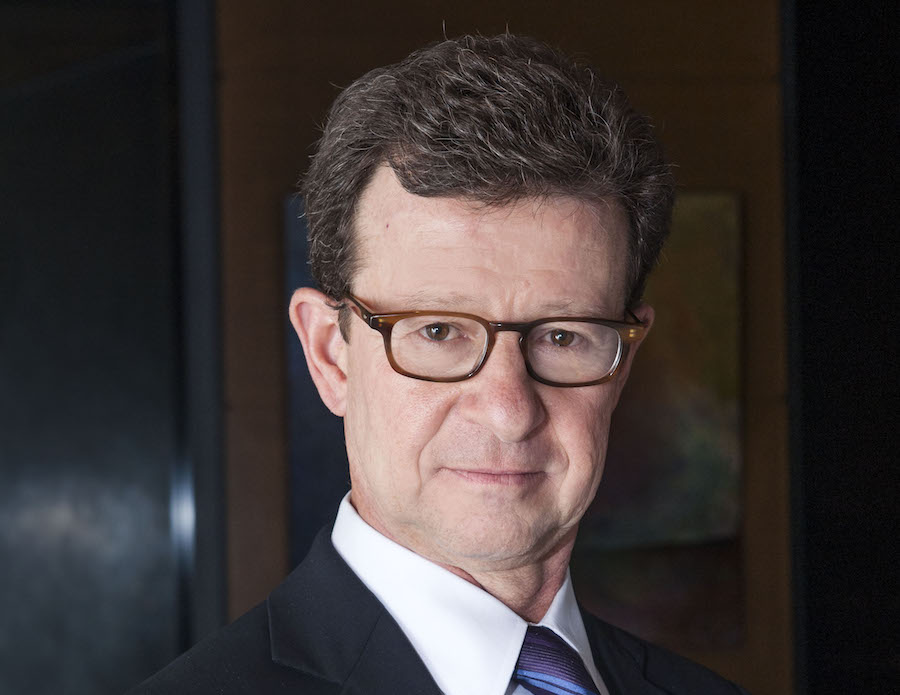Welcome to WorkingNation, a national not-for-profit campaign to educate the American public about the looming unemployment crisis in this country and to start a widespread movement to meet and overcome this unprecedented challenge.
The world of work is changing—faster than we ever could have predicted—and very little is being done to prepare for it. In fact, most Americans are woefully unprepared for the rapidly accelerating changes already underway. If we act now, we can still greatly reduce the negative impact that many American families are poised to face.
According to a recent Oxford University study, as many as 47 percent of all jobs are likely to be eliminated by technology within the next 20 years. That’s nearly half of all workers out of a job. Add globalization, longevity in the workforce, and the inability of our education system to keep pace, and the problem is only made worse.
WorkingNation will draw attention to the complexity and gravity of this challenge and champion scalable solutions. As a country, we have the tools to overcome this challenge. Now is the time to rapidly accelerate our response.
In the coming months, WorkingNation will premier a series of original programming from award-winning directors and producers that investigate the many aspects of the growing employability gap in the United States and its impact on middle class lives as well as those less fortunate.
Projects like the “The Slope of the Curve,” an animated short film by two-time Academy Award-nominated documentarian Marshall Curry; “Jobs 2.0,” a series of digital shorts by two-time Academy Award-winning director Barbara Kopple; and our series of roundtable discussions with thought leaders and experts will be hosted on WorkingNation.com and distributed through one of our mainstream media partners and on social media.
Sign up for our newsletter below to get all of our programming as it premiers.
In the meantime, here are some facts about the future of work that every American should know.
The looming threat of mass Structural Unemployment is everyone’s problem. Nearly half of the country could be affected directly and the rest could suffer from the consequences of a devastated U.S. economy. Many people fail to realize that it won’t just be factory workers and unskilled laborers who lose their jobs. Technology is eliminating highly skilled positions in white-collar industries as well.
The employability gap is a fancy term for a simple concept: There’s a gap between the skills employers need from their workers, both now and in the future, and the skills Americans actually have. The equation is not pretty. Our current education system hasn’t kept up with the rapidly changing skills needed as technology plays a larger role in jobs of all kinds.
Thankfully, some corporations, not-for-profit organizations, and other stakeholders are already coming up with solutions to counteract the skills gap. Organizations like Year Up, College for Social Innovation, Operation Hope, AmeriCorps, and Service Year Alliance are forging a path forward. They’re providing workers in need with skills development, retraining programs, college and vocational credits, internships, and other forms of support. We must to continue to scale these types of solutions and connect more people to these types of programs in order to keep America working.
Progress will be made locally. Overcoming the employability gap will require the active participation of local employers, non-profits, local government leaders and educational organizations on a grassroots level. Thankfully, many are already raising their hand to do their part.
All Americans can be part of the solution. We face a major challenge that will require a widespread movement. It begins with a dialogue, spreading awareness, and getting individuals to consider their own situation in the context of a rapidly changing world of work.
So ask yourself: “Am I Future-Proof?” That means taking an honest assessment of one’s own employment, education and skills. It means understanding your current and future employability and beginning to plan for the challenges ahead.

Art Bilger, Founder & CEO, is currently an active venture capital investor. He has been an investor in and director of various private companies including Akamai Technologies, Inc., where he also served as Vice Chairman. He was also President, Chief Operating Officer and a director of New World Communications Group, Inc.; a founding partner of Apollo Advisors, LP and Executive Vice President, Co-Head of Corporate Finance and a Director of Drexel Burnham Lambert Inc. Art serves on the University of Pennsylvania’s Wharton School Board of Overseers and sits on the Board’s Executive Committee. He is also Vice Chairman of the Skirball Cultural Center; a Board member of Bet Tzedek; an Advisory Board Member for the Milken Institute Center for the Future of Aging, and a member of the Los Angeles Coalition for the Economy and Jobs. He was an Executive Producer for the film 20 Feet From Stardom, which won the 2013 Oscar for Best Documentary Feature and the 2013 award for Best Documentary at the Independent Spirit Awards. Art’s career began with the completion of his B.S. in Economics from the University of Pennsylvania and subsequent MBA from The University of Chicago.
© Copyright 2024 by Structural Unemployment, LLC dba WorkingNation